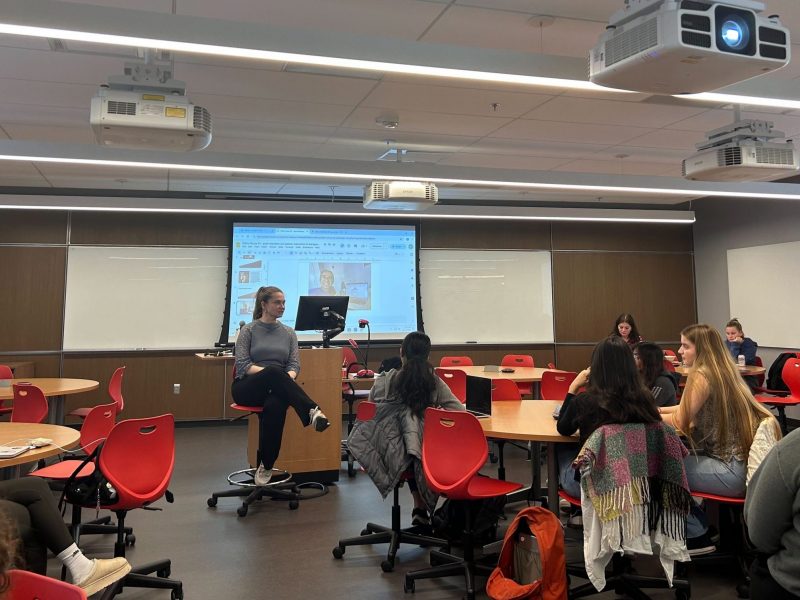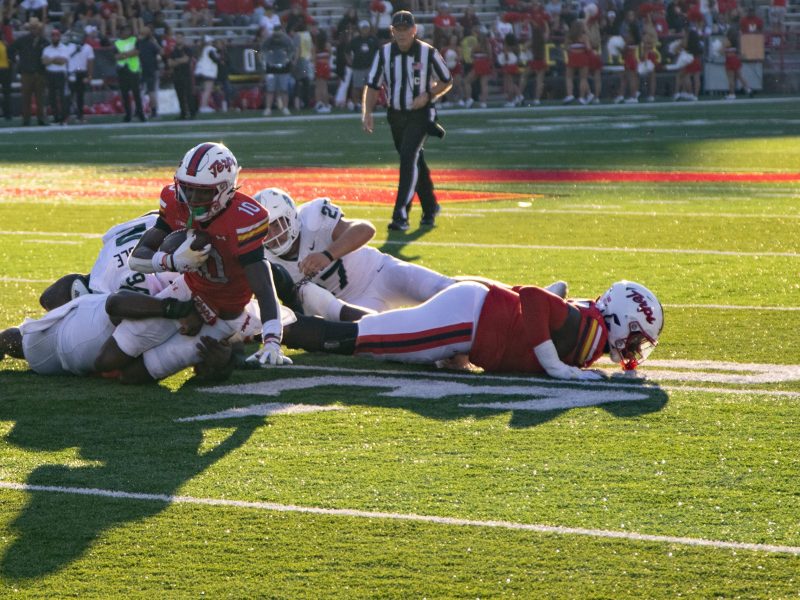
Accessibility
Sometimes it’s hard to experience what people who live with different conditions go through every day. For most of us, walking to class is a simple task, one we do with ease each day. We might even complain about long walks that require us to hike from Denton Community to the business school, for instance, when that’s just one of many struggles experienced by students with disabilities all the time.
Ableism, often defined as a prejudice against those with disabilities, isn’t something new, but some would say the campus’s recent actions treat it as though it is. This month is Disability Awareness Month, the first the university has officially acknowledged since 2007, and so far it has hosted forums, disability tours of the campus and group discussions. Though these events are nothing we can complain about, it’s a bit surprising that these types of events don’t occur year-round, rather than just a way to recognize students with disabilities one month a year.
Accessibility-wise, this university doesn’t lag behind many others: ramps, buttons to open doors and grab bars can be found in many of the libraries and other academic buildings on the campus. However, just because this university has performed moderately in this case doesn’t mean there’s no room for improvement.
Many of the dorms are not labeled as having “some rooms equipped and accessible for persons with disabilities.” Wicomico, Frederick, Easton, Denton, Calvert and Allegany halls, among others, are not labeled as such. The Department of Transportation Services does provide Paratransit services, but its website could be improved by displaying a map exclusively for showing buildings that are wheelchair-accessible, as well as parking areas for students with disabilities.
And some conflicts are almost impossible to avoid: During an Oct. 27 disability tour of the campus, tour guides pointed out the difficulties of traveling through narrow passageways, construction areas and wheelchair-accessible pathways that only lead to stairs.
This university isn’t the only one facing complaints from students with disabilities. In the spring, Boston College formed a committee to address services for disabled persons after one student filed a federal complaint to the Education Department’s Office of Civil Rights over lack of administrative response to accessibility issues. Duke University’s student government felt compelled to pass a resolution in 2012 to make the university’s West Campus 100 percent handicap accessible by 2022. Some buildings at the University of Texas at Austin are only handicap-accessible during the day, with handicap entrances unavailable after hours.
We admit that requesting major construction changes to buildings on the campus is a lot to ask (and pay) for, but that doesn’t mean we should be doing nothing. Because the problem seems to be a structural issue, this university should enhance its communication with disabled students: more signage in front of dorms and marketing disability support groups year-round, for example, could help.
For many individuals with disabilities, talking about their needs — both physical and mental — is hard to do. In a world where people strive to fit in with the crowd, addressing issues can be a difficult task if it means they’ll have to fear being categorized as “weird” or “different.”
This is why we shouldn’t have to wait for one to speak up to address serious problems he or she is facing. We should be looking for these apparent problems and addressing them immediately with the capabilities we have.
The campus will never be a “perfect” place for disabled students. Unfortunately, that’s a fact we have to face. With a little more attention and effort, though, we can make a disabled student’s dream of living on a more disability-friendly campus a reality.


